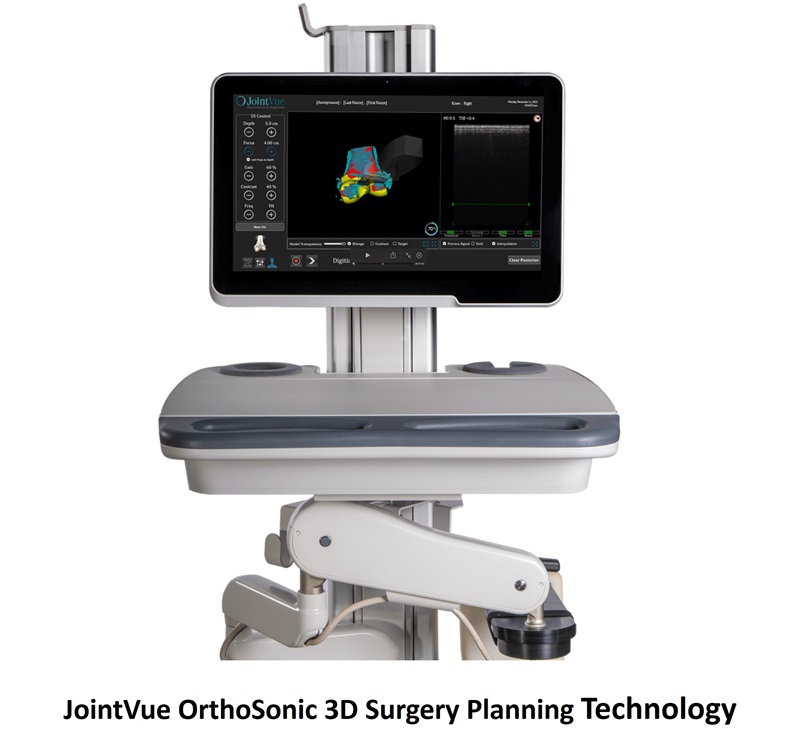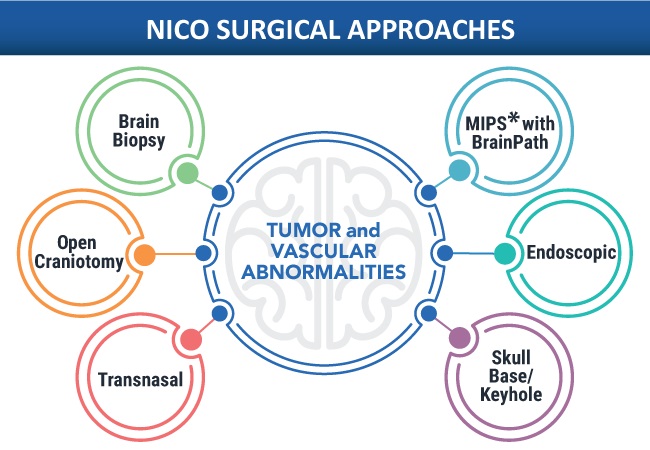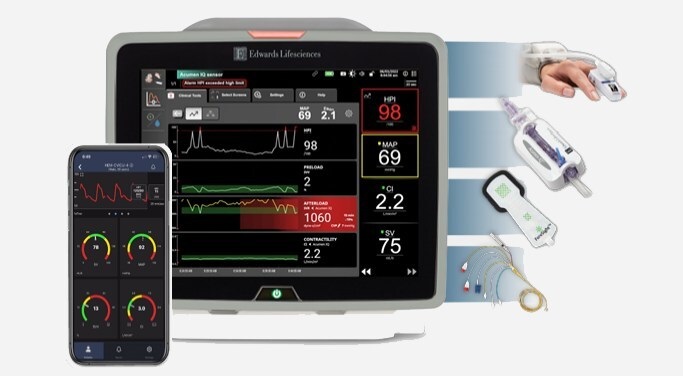AI-Powered Coronavirus-Screening App Uses Wearable Biosensors to Detect COVID-19 within Two Minutes
|
By HospiMedica International staff writers Posted on 21 Jan 2021 |
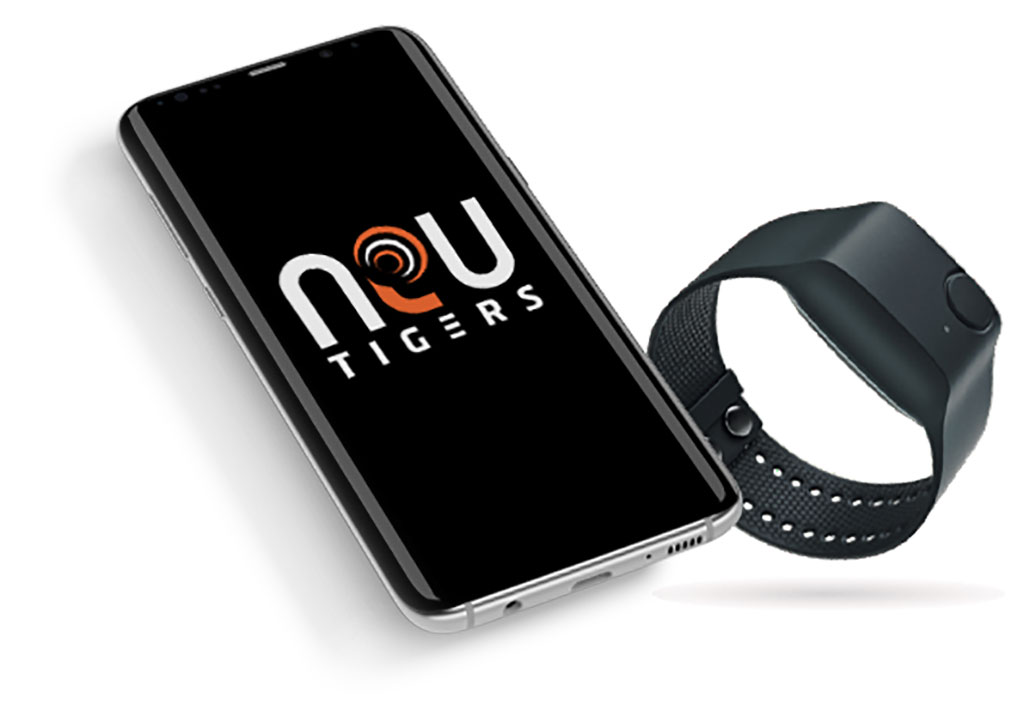
Image: AI-Powered Coronavirus-Screening App (Photo courtesy of NeuTigers)
A new AI-powered solution can triage those needing further testing for SARS-CoV-2/COVID-19 using physiological sensors data derived from wearable devices.
NeuTigers (Brooklyn, NY, USA), a spinout of Princeton University, in partnership with Rajant Corporation (Malvern, PA, USA), has launched the CovidDeep app which has an accuracy of more than 90% in predicting whether a person is virus-free or virus-positive, and is twice as effective as current triage tools, such as temperature checks and questionnaires.
COVID-19 affects people’s biometrics and physiological markers in both obvious and nearly imperceptible ways. CovidDeep is powered by cutting-edge AI deep neural networks that mimic how the human brain perceives, learns, and interprets the world. Scientists at NeuTigers used proprietary deep neural networks to learn from hundreds-of-thousands of digital health data points and a specific questionnaire in SARS-CoV-2-positive and healthy participants. They identified patterns in the sensor physiological readings such as Galvanic Skin Response (GSR), Skin temperature, Heart Inter-beat Interval (IBI), Blood pressure, and Blood oxygen saturation levels (SpO2) that are consistent with how COVID-19 impacts the body.
Users simply answer a questionnaire regarding symptoms and health history (based on CDC guidelines) and input their health sensor’s data. Data is entered by connecting CovidDeep to an Empatica E4 Wristband as well as inputting blood pressure and blood oxygen readings using any off-the-shelf device. CovidDeep then analyzes the data and provides a prediction as to whether someone is likely to be negative or positive for SARS CoV-2/COVID-19. Using advanced machine learning algorithms, CovidDeep detects changes in physiological patterns even before they are felt by the patient and all with real-time analysis. CovidDeep recognizes the ‘digital signature’ of SARS-CoV-2/COVID-19 and quickly identifies if a person is COVID-positive, even if they do not have symptoms (asymptomatic). The process takes around two minutes, allowing one Empatica device, blood pressure monitor and pulse oximeter to screen unlimited numbers of people after being sanitized between usages.
In a controlled clinical study, CovidDeep was shown to predict SARS-CoV-2/COVID-19 with upwards of 90% accuracy, almost twice as effective as temperature checks and visual symptoms checks, while NeuTiger’s own study and others have shown that it can predict COVID-19 with around 50% accuracy. CovidDeep has already been deployed in B2B settings, including multiple nursing homes and assisted living facilities in the US and Europe, and is expected to become a powerful tool for businesses and healthcare facilities who regularly screen for COVID-19.
“Advances in machine learning and the proliferation of medical-grade sensors in everyday consumer wearables has led to a new era in which we can predict and identify the onset of a myriad of diseases,” said Adel Laoui, CEO and founder of NeuTigers. “Initially meeting the urgent need for mass screening in the business environment, CovidDeep is set to expand to a wider consumer offering in early 2021,” added Laoui.
Related Links:
NeuTigers
Rajant Corporation
NeuTigers (Brooklyn, NY, USA), a spinout of Princeton University, in partnership with Rajant Corporation (Malvern, PA, USA), has launched the CovidDeep app which has an accuracy of more than 90% in predicting whether a person is virus-free or virus-positive, and is twice as effective as current triage tools, such as temperature checks and questionnaires.
COVID-19 affects people’s biometrics and physiological markers in both obvious and nearly imperceptible ways. CovidDeep is powered by cutting-edge AI deep neural networks that mimic how the human brain perceives, learns, and interprets the world. Scientists at NeuTigers used proprietary deep neural networks to learn from hundreds-of-thousands of digital health data points and a specific questionnaire in SARS-CoV-2-positive and healthy participants. They identified patterns in the sensor physiological readings such as Galvanic Skin Response (GSR), Skin temperature, Heart Inter-beat Interval (IBI), Blood pressure, and Blood oxygen saturation levels (SpO2) that are consistent with how COVID-19 impacts the body.
Users simply answer a questionnaire regarding symptoms and health history (based on CDC guidelines) and input their health sensor’s data. Data is entered by connecting CovidDeep to an Empatica E4 Wristband as well as inputting blood pressure and blood oxygen readings using any off-the-shelf device. CovidDeep then analyzes the data and provides a prediction as to whether someone is likely to be negative or positive for SARS CoV-2/COVID-19. Using advanced machine learning algorithms, CovidDeep detects changes in physiological patterns even before they are felt by the patient and all with real-time analysis. CovidDeep recognizes the ‘digital signature’ of SARS-CoV-2/COVID-19 and quickly identifies if a person is COVID-positive, even if they do not have symptoms (asymptomatic). The process takes around two minutes, allowing one Empatica device, blood pressure monitor and pulse oximeter to screen unlimited numbers of people after being sanitized between usages.
In a controlled clinical study, CovidDeep was shown to predict SARS-CoV-2/COVID-19 with upwards of 90% accuracy, almost twice as effective as temperature checks and visual symptoms checks, while NeuTiger’s own study and others have shown that it can predict COVID-19 with around 50% accuracy. CovidDeep has already been deployed in B2B settings, including multiple nursing homes and assisted living facilities in the US and Europe, and is expected to become a powerful tool for businesses and healthcare facilities who regularly screen for COVID-19.
“Advances in machine learning and the proliferation of medical-grade sensors in everyday consumer wearables has led to a new era in which we can predict and identify the onset of a myriad of diseases,” said Adel Laoui, CEO and founder of NeuTigers. “Initially meeting the urgent need for mass screening in the business environment, CovidDeep is set to expand to a wider consumer offering in early 2021,” added Laoui.
Related Links:
NeuTigers
Rajant Corporation
Latest COVID-19 News
- Low-Cost System Detects SARS-CoV-2 Virus in Hospital Air Using High-Tech Bubbles
- World's First Inhalable COVID-19 Vaccine Approved in China
- COVID-19 Vaccine Patch Fights SARS-CoV-2 Variants Better than Needles
- Blood Viscosity Testing Can Predict Risk of Death in Hospitalized COVID-19 Patients
- ‘Covid Computer’ Uses AI to Detect COVID-19 from Chest CT Scans
- MRI Lung-Imaging Technique Shows Cause of Long-COVID Symptoms
- Chest CT Scans of COVID-19 Patients Could Help Distinguish Between SARS-CoV-2 Variants
- Specialized MRI Detects Lung Abnormalities in Non-Hospitalized Long COVID Patients
- AI Algorithm Identifies Hospitalized Patients at Highest Risk of Dying From COVID-19
- Sweat Sensor Detects Key Biomarkers That Provide Early Warning of COVID-19 and Flu
- Study Assesses Impact of COVID-19 on Ventilation/Perfusion Scintigraphy
- CT Imaging Study Finds Vaccination Reduces Risk of COVID-19 Associated Pulmonary Embolism
- Third Day in Hospital a ‘Tipping Point’ in Severity of COVID-19 Pneumonia
- Longer Interval Between COVID-19 Vaccines Generates Up to Nine Times as Many Antibodies
- AI Model for Monitoring COVID-19 Predicts Mortality Within First 30 Days of Admission
- AI Predicts COVID Prognosis at Near-Expert Level Based Off CT Scans
Channels
Critical Care
view channel_1.jpg)
Cutting-Edge Bioelectronic Device Offers Drug-Free Approach to Managing Bacterial Infections
Antibiotic-resistant infections pose an increasing threat to patient safety and healthcare systems worldwide. Recent estimates indicate that drug-resistant infections may rise by 70% by 2050, highlighting... Read more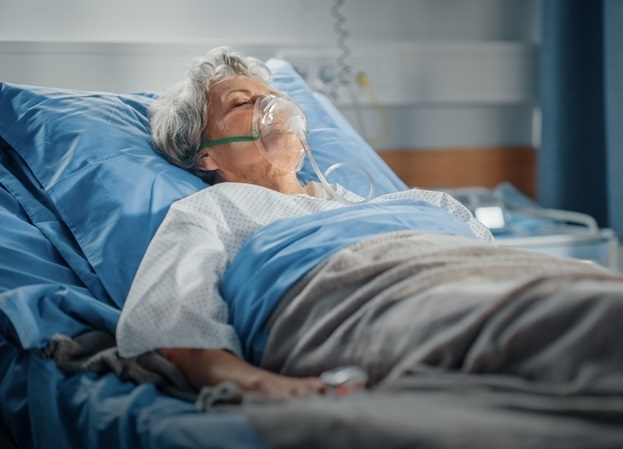
Sophisticated Machine-Learning Approach Uses Patient EHRs to Predict Pneumonia Outcomes
Pneumonia, an infection that results in difficulty breathing due to fluid accumulation in the lungs, is one of the leading causes of death worldwide. This condition is particularly challenging to treat... Read more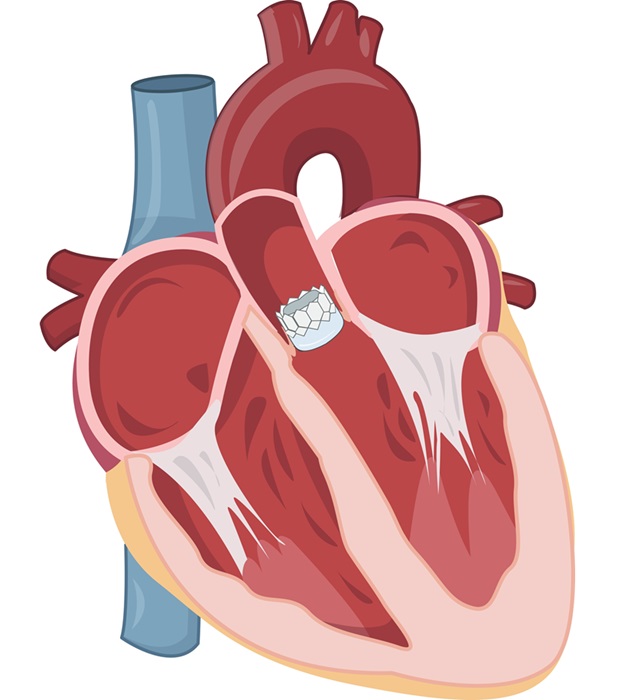
Early TAVR Benefits Patients with Asymptomatic Severe Aortic Stenosis
For patients with asymptomatic severe aortic stenosis (AS) and preserved left-ventricular ejection fraction, current guidelines recommend clinical surveillance every six to twelve months.... Read more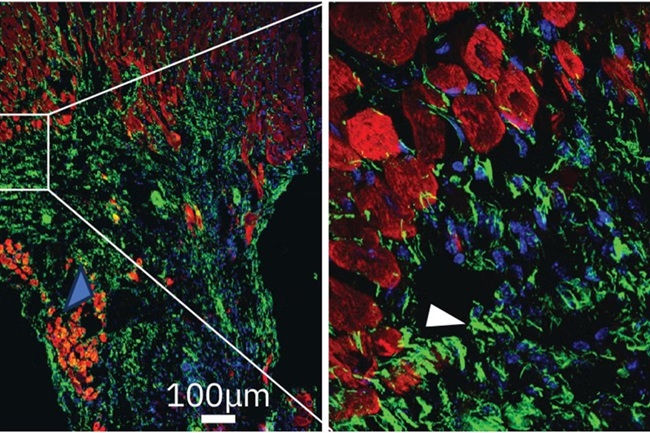
First-Of-Its-Kind Experimental Therapy Enhances Tissue Repair After Heart Attack
Cardiovascular disease remains the leading cause of death worldwide, accounting for one-third of all annual fatalities. Following a heart attack, the heart's natural regenerative ability is limited, resulting... Read moreSurgical Techniques
view channel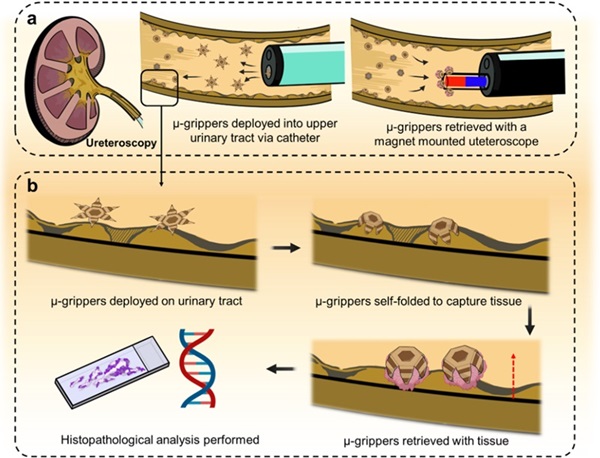
Microgrippers For Miniature Biopsies to Create New Cancer Diagnostic Screening Paradigm
The standard diagnosis of upper urinary tract cancers typically involves the removal of suspicious tissue using forceps, a procedure that is technically challenging and samples only a single region of the organ.... Read moreMiniature Soft Lithium-Ion Battery Could Be Used as Defibrillator During Surgery
The development of tiny smart devices, measuring just a few cubic millimeters, requires equally miniature power sources. For minimally invasive biomedical devices that interact with biological tissues,... Read more.jpg)
TAVI Procedure Supported by Radial Artery Access Reduces Bleeding Complications
The TAVI procedure, or Transcatheter Aortic Valve Implantation, is a minimally invasive technique in which a new aortic valve is inserted through a femoral artery to replace a narrowed old valve.... Read more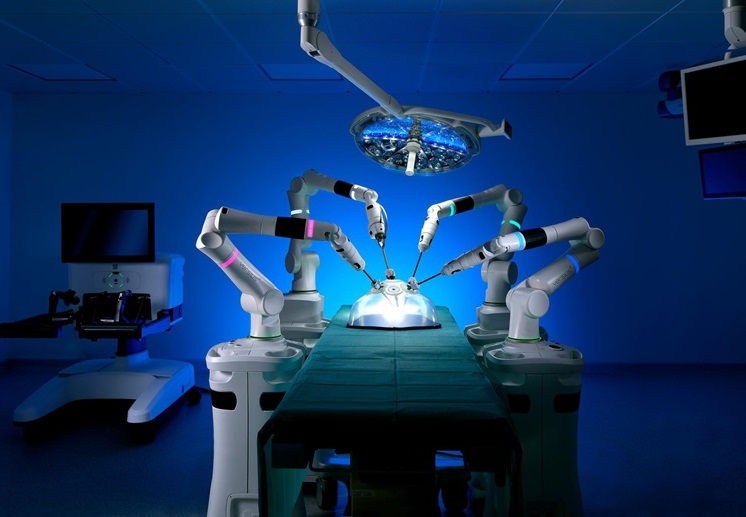
Portable Surgical Robot Seamlessly Integrates into Any OR for Performing Cholecystectomy Procedures
The United States represents a significant market with a strong demand for a flexible surgical robotic system applicable across various care settings. However, there has been a lack of sufficient options... Read morePatient Care
view channel
Portable Biosensor Platform to Reduce Hospital-Acquired Infections
Approximately 4 million patients in the European Union acquire healthcare-associated infections (HAIs) or nosocomial infections each year, with around 37,000 deaths directly resulting from these infections,... Read moreFirst-Of-Its-Kind Portable Germicidal Light Technology Disinfects High-Touch Clinical Surfaces in Seconds
Reducing healthcare-acquired infections (HAIs) remains a pressing issue within global healthcare systems. In the United States alone, 1.7 million patients contract HAIs annually, leading to approximately... Read more
Surgical Capacity Optimization Solution Helps Hospitals Boost OR Utilization
An innovative solution has the capability to transform surgical capacity utilization by targeting the root cause of surgical block time inefficiencies. Fujitsu Limited’s (Tokyo, Japan) Surgical Capacity... Read more
Game-Changing Innovation in Surgical Instrument Sterilization Significantly Improves OR Throughput
A groundbreaking innovation enables hospitals to significantly improve instrument processing time and throughput in operating rooms (ORs) and sterile processing departments. Turbett Surgical, Inc.... Read moreHealth IT
view channel
Machine Learning Model Improves Mortality Risk Prediction for Cardiac Surgery Patients
Machine learning algorithms have been deployed to create predictive models in various medical fields, with some demonstrating improved outcomes compared to their standard-of-care counterparts.... Read more
Strategic Collaboration to Develop and Integrate Generative AI into Healthcare
Top industry experts have underscored the immediate requirement for healthcare systems and hospitals to respond to severe cost and margin pressures. Close to half of U.S. hospitals ended 2022 in the red... Read more
AI-Enabled Operating Rooms Solution Helps Hospitals Maximize Utilization and Unlock Capacity
For healthcare organizations, optimizing operating room (OR) utilization during prime time hours is a complex challenge. Surgeons and clinics face difficulties in finding available slots for booking cases,... Read more
AI Predicts Pancreatic Cancer Three Years before Diagnosis from Patients’ Medical Records
Screening for common cancers like breast, cervix, and prostate cancer relies on relatively simple and highly effective techniques, such as mammograms, Pap smears, and blood tests. These methods have revolutionized... Read morePoint of Care
view channel
Handheld, Sound-Based Diagnostic System Delivers Bedside Blood Test Results in An Hour
Patients who go to a doctor for a blood test often have to contend with a needle and syringe, followed by a long wait—sometimes hours or even days—for lab results. Scientists have been working hard to... Read more
Smartphone-Enabled, Paper-Based Quantitative Diagnostic Platform Transforms POC Testing
Point-of-care diagnostics are crucial for public health, offering rapid, on-site testing that enables prompt diagnosis and treatment. This is especially valuable in remote or underserved regions where... Read moreBusiness
view channel
Hologic Acquires Gynesonics to Strengthen Existing Gynecological Surgical Business
Hologic (Marlborough, MA, USA) has signed a definitive agreement to acquire Gynesonics (Redwood City, CA, USA) for approximately USD 350 million, subject to working capital and other customary closing adjustments.... Read more